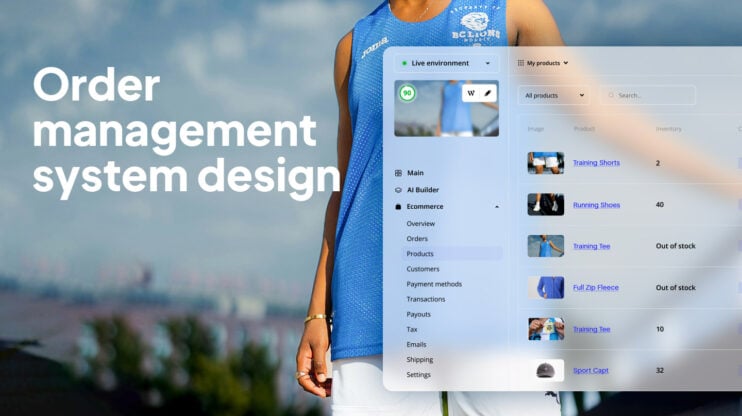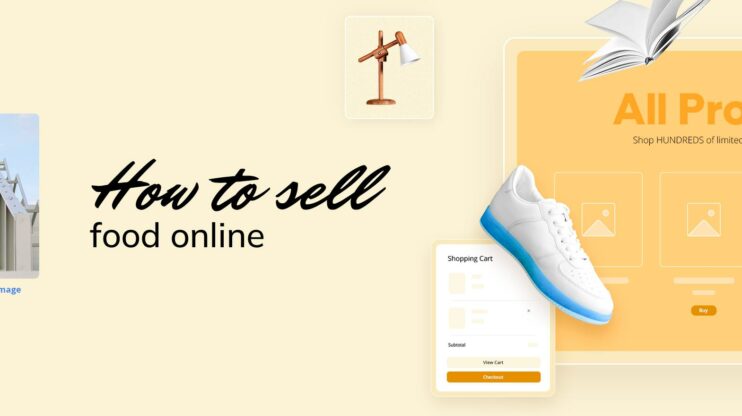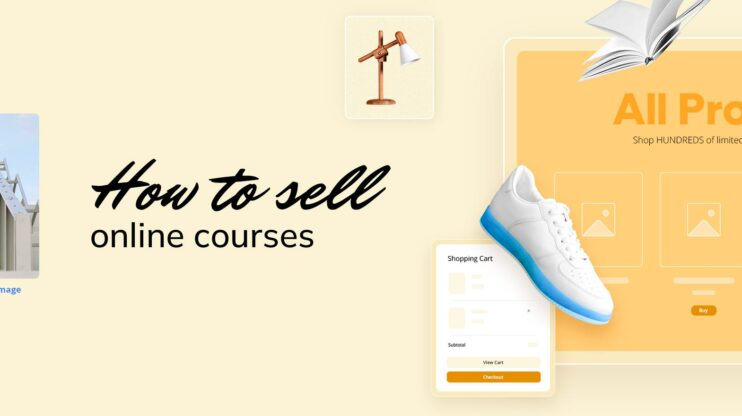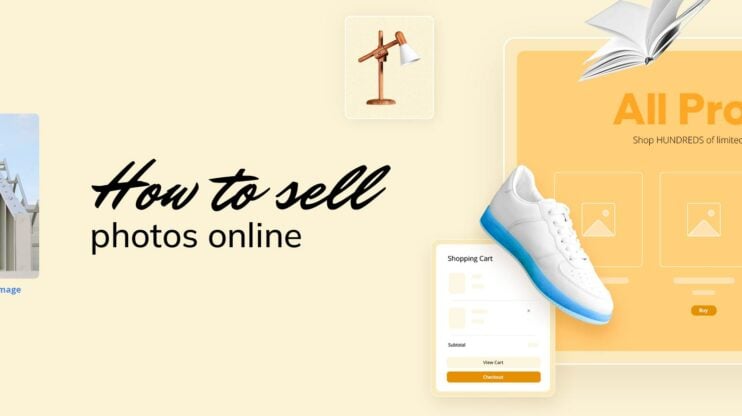Email marketing plays a key role in helping online stores grow their business and connect with customers. It’s a powerful way to promote products, share updates, and drive sales. Many ecommerce companies rely on email marketing to reach their target audience effectively.
Choosing the right email marketing software can make a big difference for online retailers. The best tools offer features designed specifically for ecommerce, like product recommendations, abandoned cart reminders, and integration with popular online store platforms. They also provide easy-to-use templates, automation options, and analytics to track results.
This article covers the top 13 email marketing software options for ecommerce businesses, highlighting key features like automation, personalization, and integration with online store platforms. It provides a detailed review of each tool, including pros and cons, to help businesses choose the best email marketing software to enhance customer engagement and drive sales.

Create your online store in minutes!
Looking to sell online? Develop and launch your store with 10Web AI Ecommerce Website Builder.
FAQ
What are the top email marketing tools? Which platform is best for Shopify? Are there free email marketing options? What is Klaviyo used for? How does email marketing benefit ecommerce? What features should I look for? Is HubSpot good for email campaigns? What are the best platforms for small businesses? What is the best B2B option? Which tools have the best reviews on Reddit?
Advantages of email marketing for ecommerce
Email marketing helps online stores boost sales and build customer relationships. It’s a powerful tool for reaching shoppers directly and encouraging repeat purchases.
Revenue generation
Email marketing can increase your ecommerce sales in several ways. You can send targeted promotions to specific customer groups based on their past purchases or browsing history. This personalization makes shoppers more likely to buy.
Abandoned cart emails remind customers about items they left in their cart, prompting them to complete the purchase. These reminders can recover lost sales and boost your bottom line.
Product recommendation emails showcase items that match a customer’s interests. By highlighting relevant products, you make it easy for shoppers to find what they want and buy more.
Email marketing also lets you announce sales, new products, and special offers. These messages create urgency and excitement, driving more traffic to your online store.
Customer engagement
Emails help you stay connected with your customers between purchases. You can share helpful content like product guides, style tips, or how-to articles. This builds trust and positions your brand as an expert in your field.
Welcome emails greet new subscribers and set expectations for future messages. A warm welcome can turn a casual browser into a loyal customer.
Birthday or anniversary emails with special offers make customers feel valued. These personal touches strengthen your relationship with shoppers and encourage repeat business.
You can use emails to gather feedback through surveys or product reviews. An online form builder makes it easy to create customized forms for collecting insights that help improve your products and service, leading to happier customers and more sales.
Regular newsletters keep your brand top-of-mind. By sharing company news, behind-the-scenes peeks, or customer stories, you create a connection that goes beyond just selling products.

Create your online store in minutes!
Looking to sell online? Develop and launch your store with 10Web AI Ecommerce Website Builder.
Features to look for in email marketing software
When choosing email marketing software for your ecommerce business, certain features can make a big difference. These tools can help you reach customers better and boost sales.
Automation capabilities
Good email marketing software lets you set up automatic emails. You can send welcome messages when someone signs up. You can also remind people about items left in their cart.
Some platforms offer pre-made email sequences. These can save you time. Look for software that lets you make your own custom workflows too.
The best tools track customer actions on your site. They use this info to send targeted emails at the right time. This can lead to more sales and happy customers.
Personalization options
Personalized emails can make customers feel special. Look for software that lets you use customer data in your emails. This includes things like names, past purchases, and browsing history.
Some tools offer dynamic content blocks. These change based on who’s reading the email. You might show different products to different customers.
Advanced software can segment your list in many ways. You could group customers by location, purchase history, or how often they buy. This helps you send more relevant emails to each group.
Integration with ecommerce platforms
Your email marketing software should work well with your online store. Look for direct integrations with platforms like WooCommerce or Magento.
Good integration means your customer data flows smoothly between systems. This can help you track sales from email campaigns more easily.
Some email tools offer features made just for ecommerce. These might include product recommendation blocks or abandoned cart emails. Make sure the software you pick has the ecommerce features you need.

Create your online store in minutes!
Looking to sell online? Develop and launch your store with 10Web AI Ecommerce Website Builder.
13 best email marketing software for ecommerce
This section provides a detailed overview of 13 top email marketing software options tailored for ecommerce businesses. It highlights each platform’s key features, such as automation, integration with ecommerce platforms, and customization options, along with their pros and cons to help businesses select the best tool for their email marketing needs.
Klaviyo
Klaviyo is a top email marketing software for ecommerce businesses. It helps you create and send targeted emails to your customers.
Klaviyo connects with many online stores like WooCommerce. This lets you use customer data to make your emails more personal.
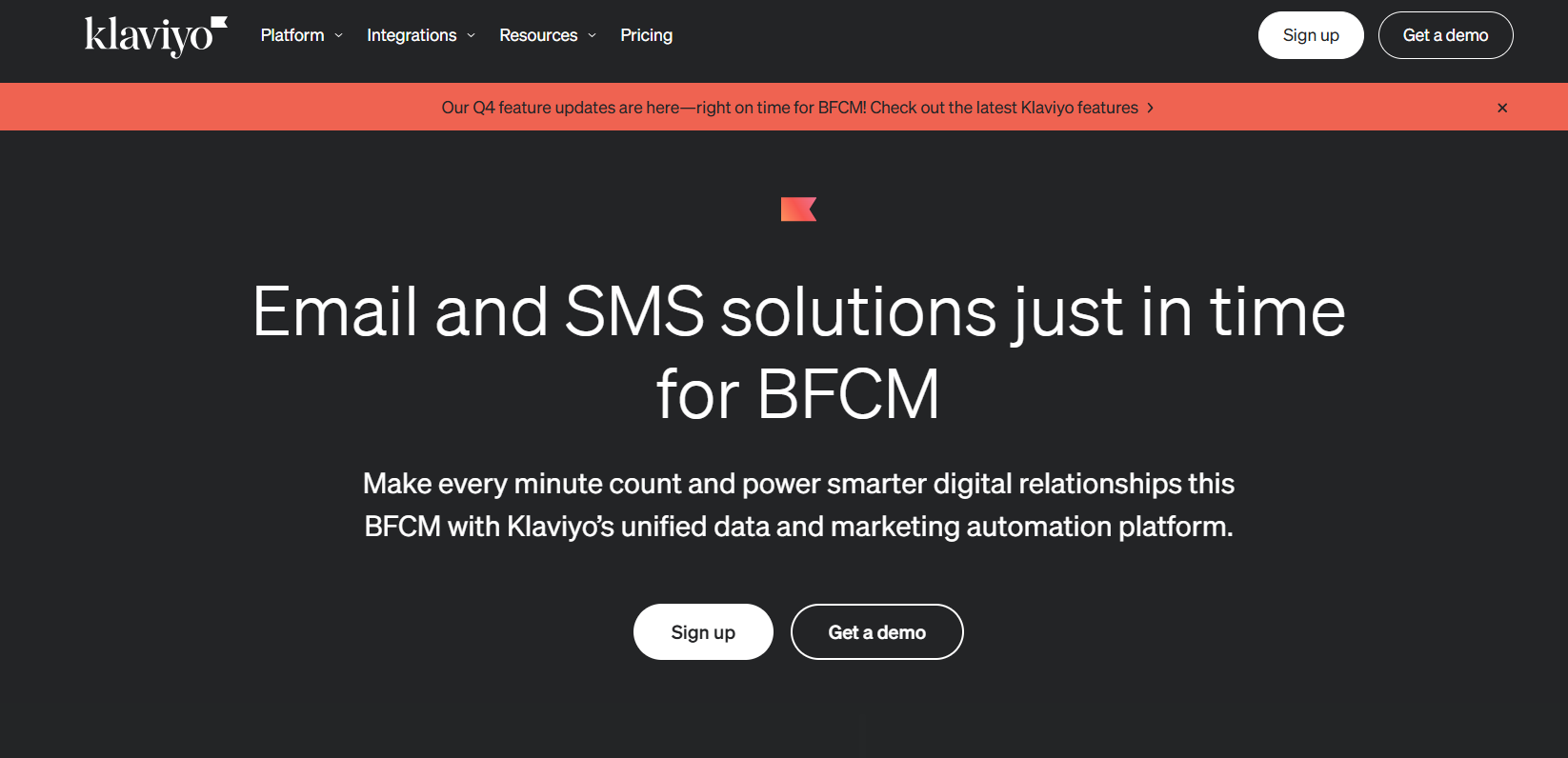
You can set up automated emails with Klaviyo. These can be welcome messages, abandoned cart reminders, or post-purchase follow-ups.
The platform offers easy-to-use templates for your emails. You can also make your own designs from scratch.
Klaviyo is great for small to large online stores. It works well for fashion, beauty, food, and other ecommerce niches.
| Pros | Cons |
| Good ecommerce integrations | Can be pricey for large lists |
| Strong automation features | Learning curve for new users |
| Detailed analytics | Limited design options |
Mailchimp
Mailchimp is a popular email marketing tool for ecommerce businesses. It offers a user-friendly interface and many features to help you reach customers. You can create and send newsletters, promotional emails, and automated campaigns.
With Mailchimp, you can design eye-catching emails using drag-and-drop tools. The platform provides templates to get you started quickly. You can also segment your audience and personalize messages for different groups.
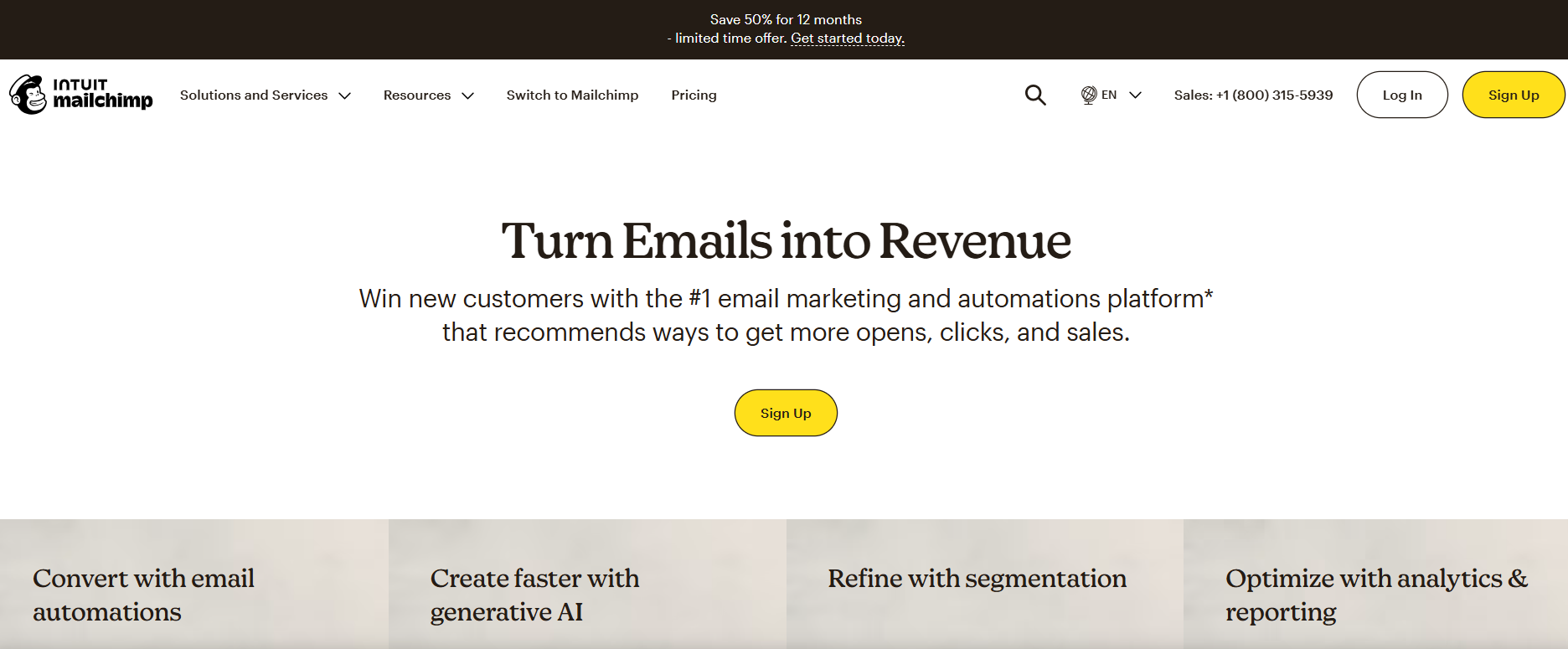
Mailchimp integrates with many ecommerce platforms like Shopify and WooCommerce. This lets you sync customer data and track sales from your emails. You can also use Mailchimp to create landing pages and social media ads.
Small to medium-sized ecommerce businesses often use Mailchimp. It’s suitable for online retailers, bloggers, and digital product sellers. The software works well for companies in fashion, food, tech, and home goods industries.
| Pros | Cons |
| Easy to use | Can be pricey for large lists |
| Free plan available | Limited advanced features |
| Good ecommerce integrations | Email templates can be basic |
Omnisend
Omnisend is an email marketing platform made for ecommerce businesses. It helps online stores connect with customers through email, SMS, and web push notifications.
You can use Omnisend to create and send marketing messages to your customers. The software offers tools to design emails, set up automated campaigns, and segment your audience.
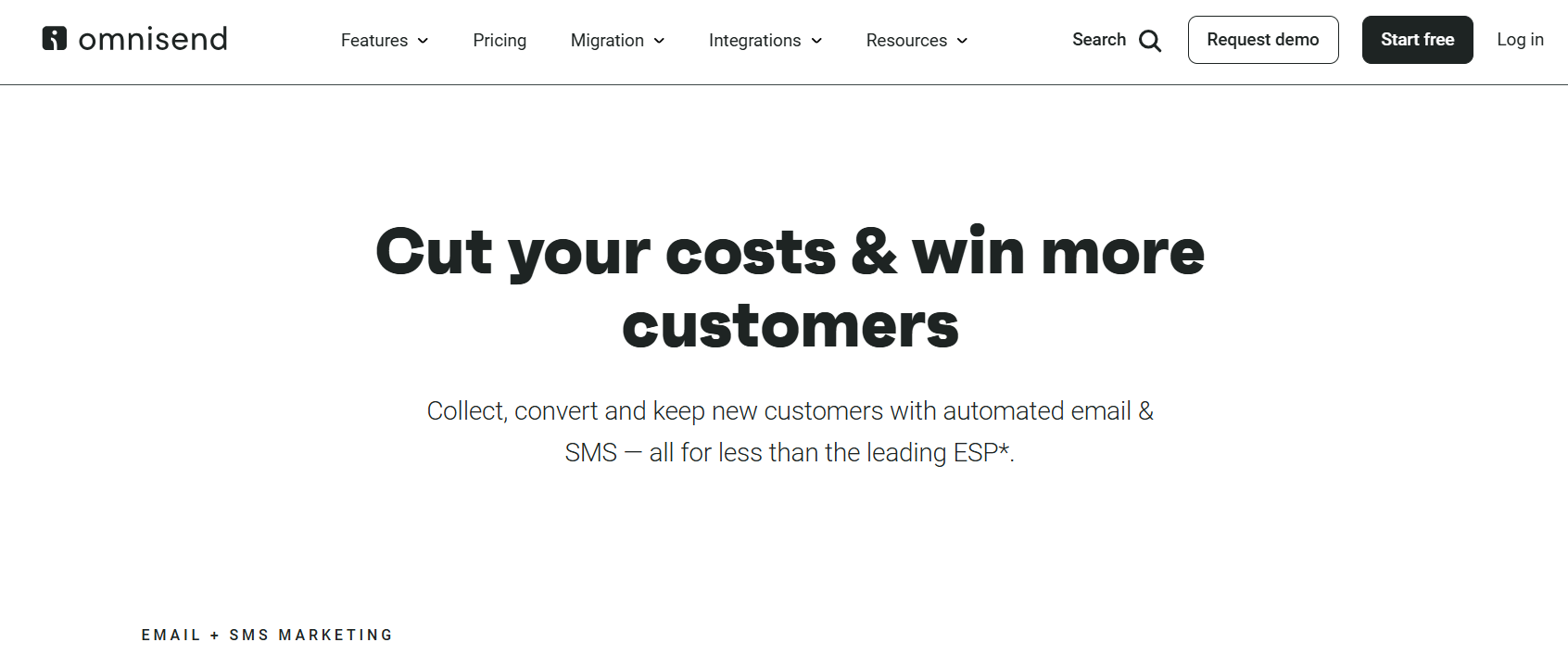
Omnisend works well for small to large ecommerce stores. It’s popular with Shopify users but also integrates with other platforms like WooCommerce and Magento.
The main features of Omnisend include email templates, automation workflows, and product recommendations. You can also use it for cart abandonment emails and welcome series.
| Pros | Cons |
| Easy to use for beginners | Limited features on free plan |
| Good ecommerce integrations | Can be pricey for large lists |
| Includes SMS marketing | Learning curve for advanced features |
Sendinblue
Sendinblue, now known as Brevo, is a popular email marketing tool for ecommerce businesses. It offers features to help you grow your online store and connect with customers.
You can send targeted emails based on customer behavior and purchase history. Brevo lets you create eye-catching emails with a drag-and-drop editor. You can also set up automated email sequences for things like welcome messages and abandoned cart reminders.
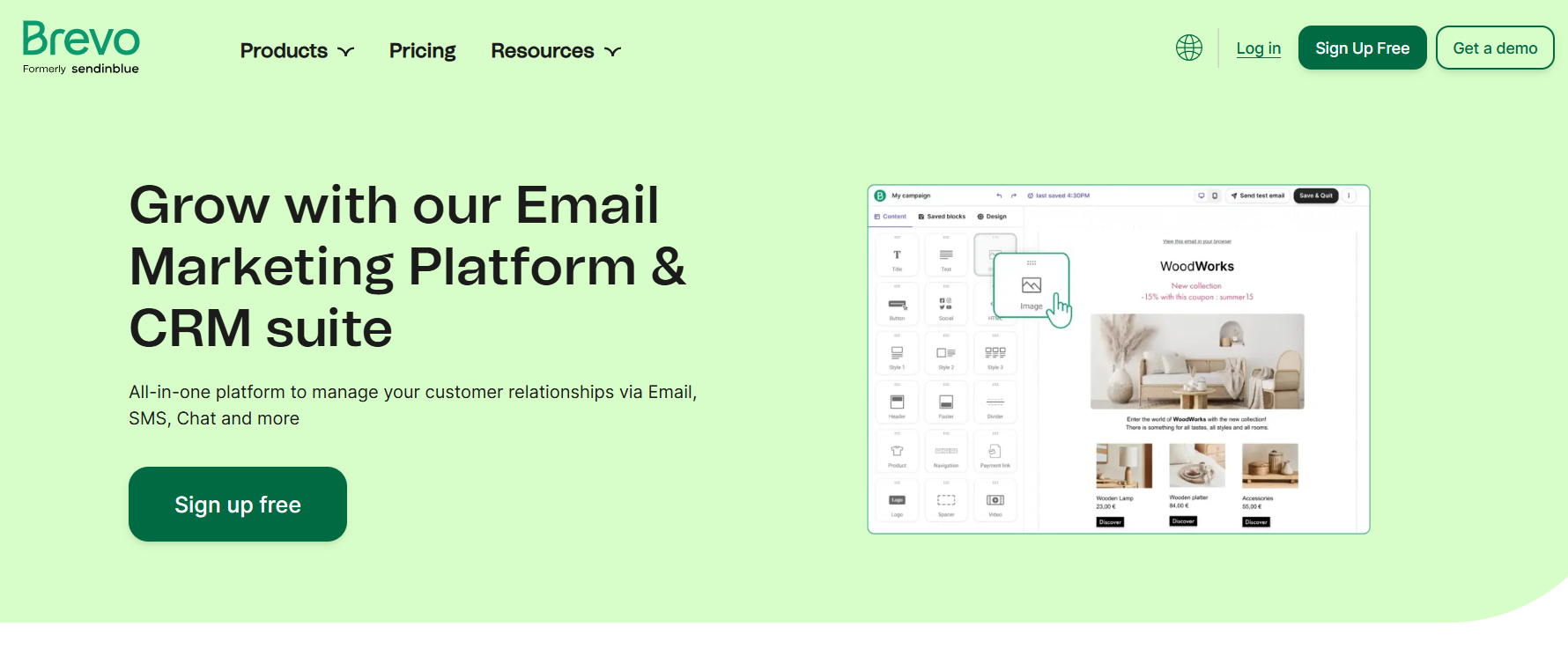
Small to medium-sized ecommerce companies often use Brevo. It works well for retail, fashion, and food industries. This tool is a good fit for businesses looking for an all-in-one marketing platform.
Brevo integrates with many ecommerce platforms. You can easily sync your product catalog and customer data. It also offers SMS marketing and a built-in CRM to manage your contacts.
| Pros | Cons |
| User-friendly interface | Limited advanced features |
| Affordable pricing plans | Email builder can be slow |
| Good deliverability rates | Learning curve for beginners |
As one of the best email marketing software for ecommerce, Brevo offers a solid mix of features at a reasonable price point. It’s a worthy option to consider for your online store’s email marketing needs.

Create your online store in minutes!
Looking to sell online? Develop and launch your store with 10Web AI Ecommerce Website Builder.
Drip
Drip is an email marketing software made for online stores. It helps you send targeted emails to your customers based on their shopping habits. You can create automated email campaigns that send messages at the right time in the buying process.
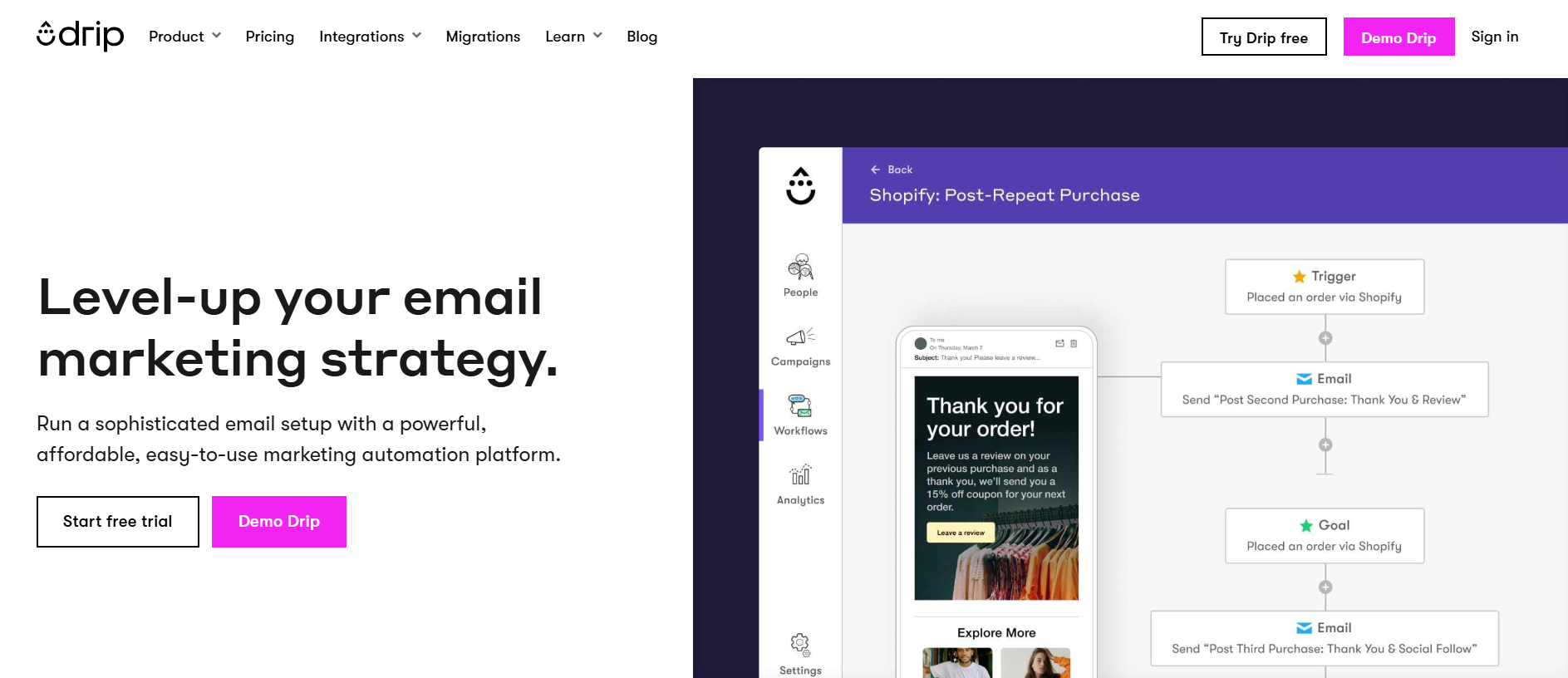
With Drip, you can segment your email list in many ways. This lets you send more relevant emails to different groups of customers. The platform also offers easy-to-use email templates and a drag-and-drop editor.
Drip connects with many ecommerce platforms like Shopify and WooCommerce. This makes it simple to sync your store data and use it in your email campaigns.
| Pros | Cons |
| Built for ecommerce | Can be pricey for small businesses |
| [Strong automation features](https://10web.io/blog/top-5-automation-plugins-to-enhance-your-marketing/) | Learning curve for new users |
| Good integration options | Limited design options |
Drip works well for mid-sized to large online stores that want to create complex email campaigns. If you’re looking to send more than just basic newsletters, Drip could be a good fit for your business.
Constant Contact
Constant Contact is a popular email marketing platform for ecommerce businesses. You can use it to create and send emails, manage contacts, and track campaign performance.
The software offers templates designed for online stores. These help you make product announcements, send cart abandonment reminders, and promote sales.
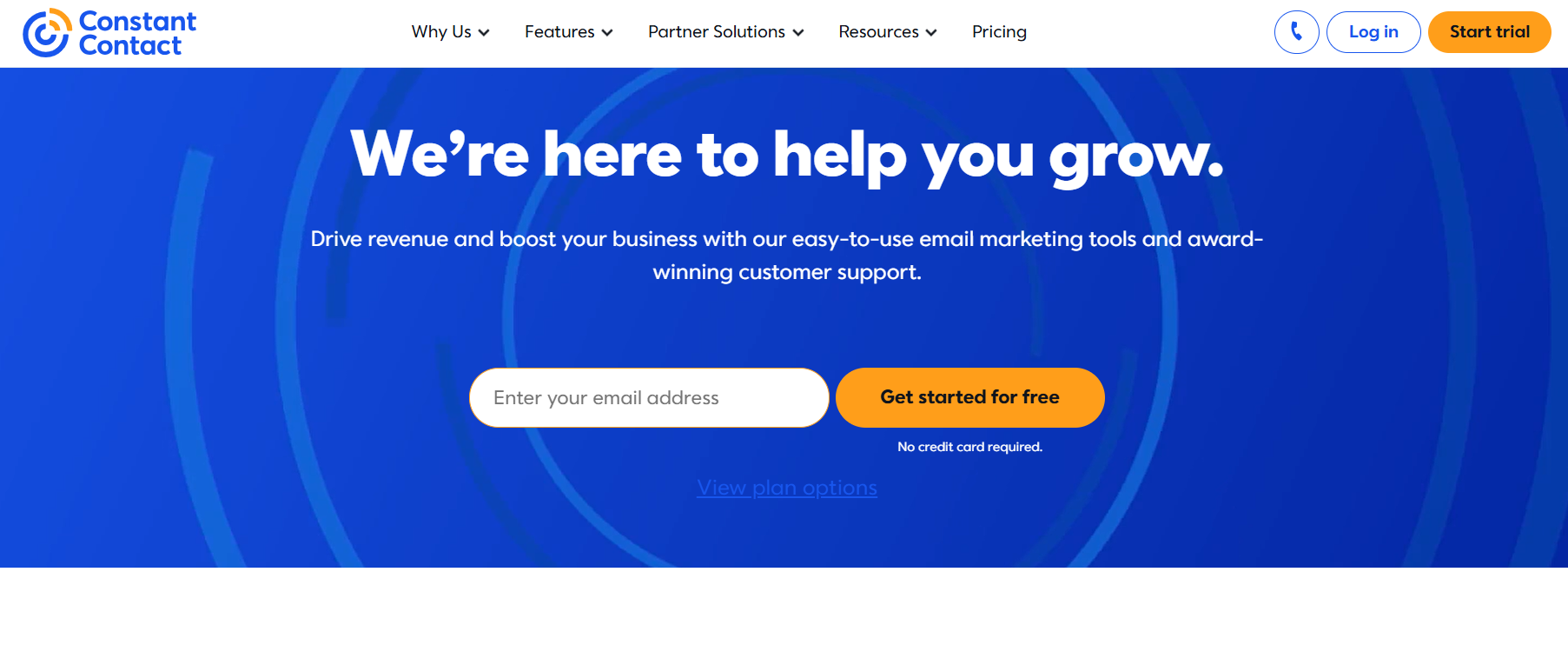
Constant Contact integrates with many ecommerce platforms. This makes it easy to sync your product catalog and customer data.
Small to medium-sized online retailers often choose Constant Contact. It’s user-friendly and has tools tailored for selling online.
The platform works well for various industries. Clothing stores, gift shops, and specialty food sellers can all benefit from its features.
| Pros | Cons |
| Easy to use interface | Limited advanced automation |
| Ecommerce-specific templates | Higher pricing for larger lists |
| Good customer support | Basic reporting features |
Constant Contact stands out as one of the best email marketing software for ecommerce due to its simplicity and focus on online selling features.
Aweber
AWeber is an email marketing tool that works well for ecommerce businesses. It has an easy-to-use email editor to help you create good-looking messages. You can make signup forms to get more people on your list.
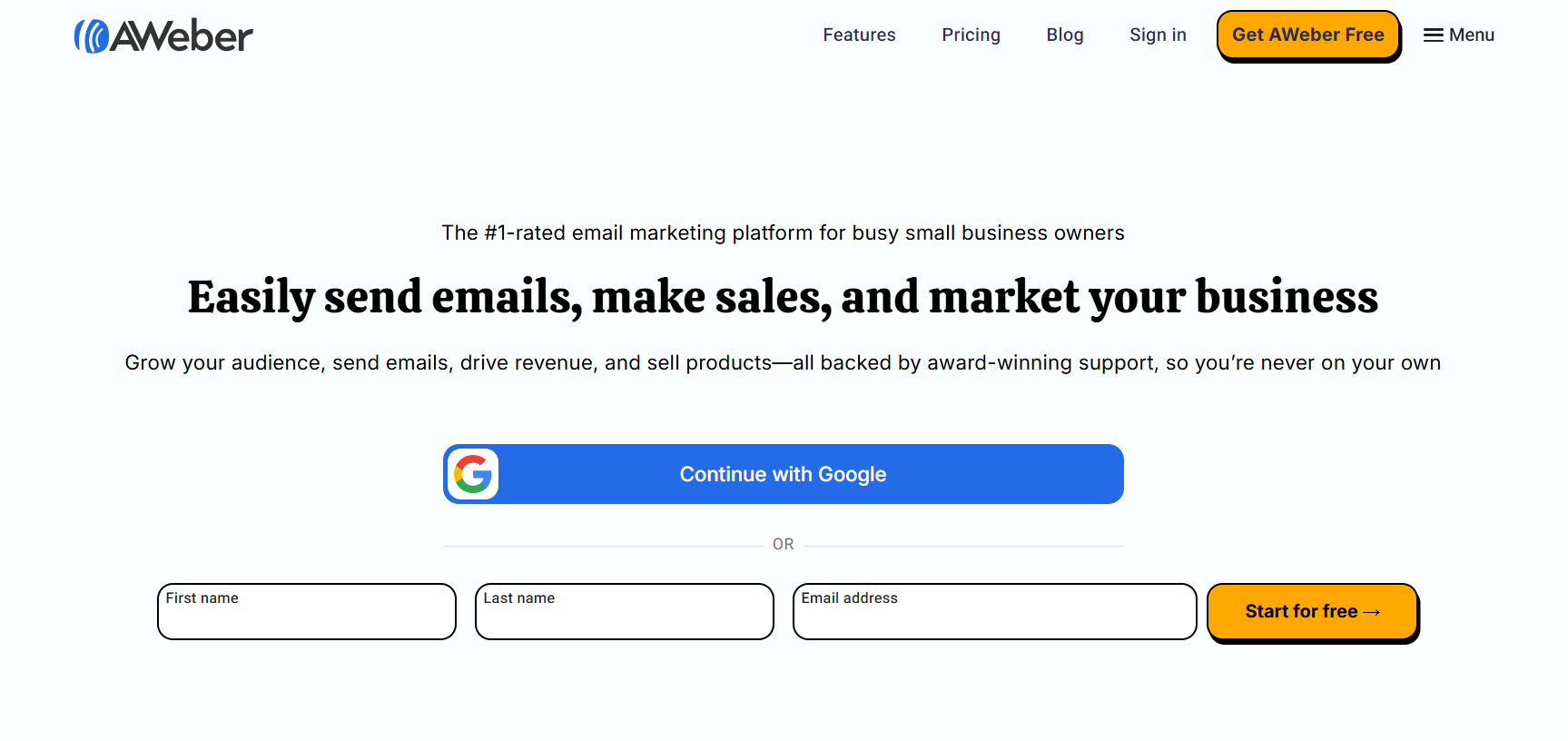
AWeber lets you send automated emails when customers do things like buy products. This helps you stay in touch and make more sales. You can also track how your emails are doing with simple reports.
The software works with many ecommerce platforms. This makes it easy to connect your online store. AWeber is a good choice for small businesses and content creators selling online.
| Pros | Cons |
| Easy to use email editor | Limited design options |
| Works with ecommerce platforms | Can be pricey for large lists |
| Good for beginners | Lacks some advanced features |
Campaign monitor
Campaign Monitor is an email marketing tool that helps ecommerce businesses reach customers. It has a drag-and-drop editor to make emails. You can use it to send marketing messages and keep in touch with shoppers.
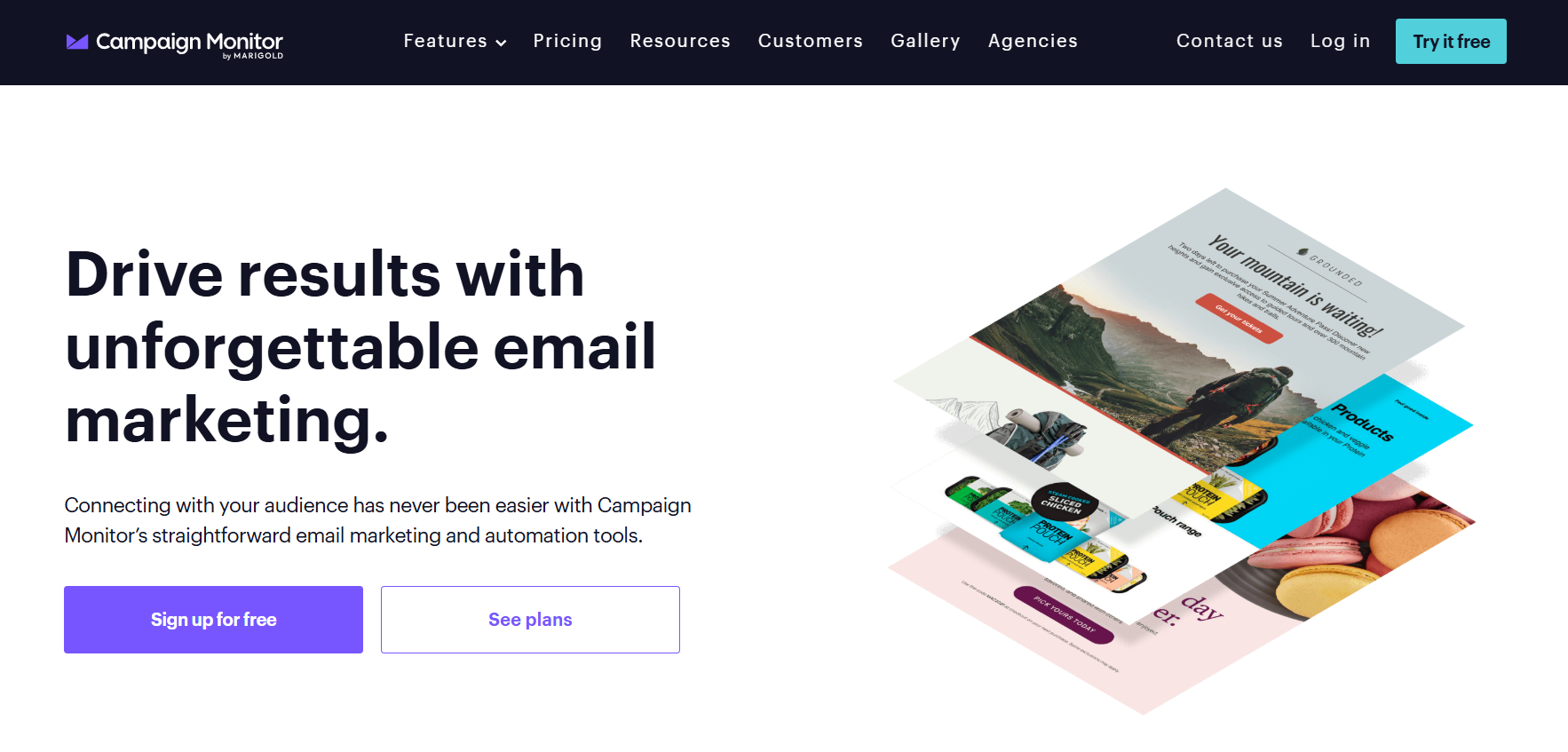
The software lets you make emails that look good on phones and computers. You can add your brand colors and logos to match your store’s style. It also tracks how well your emails do.
Campaign Monitor works for small and big online stores. It’s good for companies that want simple but pretty emails. You can use it to send newsletters, sale alerts, and product updates.
| Pros | Cons |
| Easy to use | Fewer features than some other tools |
| Nice-looking templates | Can be pricey for big lists |
| Good for branding | Limited automation options |
GetResponse
GetResponse is an email marketing platform that works well for ecommerce businesses. It lets you send newsletters and create email campaigns to promote your products. You can connect your online store to GetResponse to use customer data in your emails.
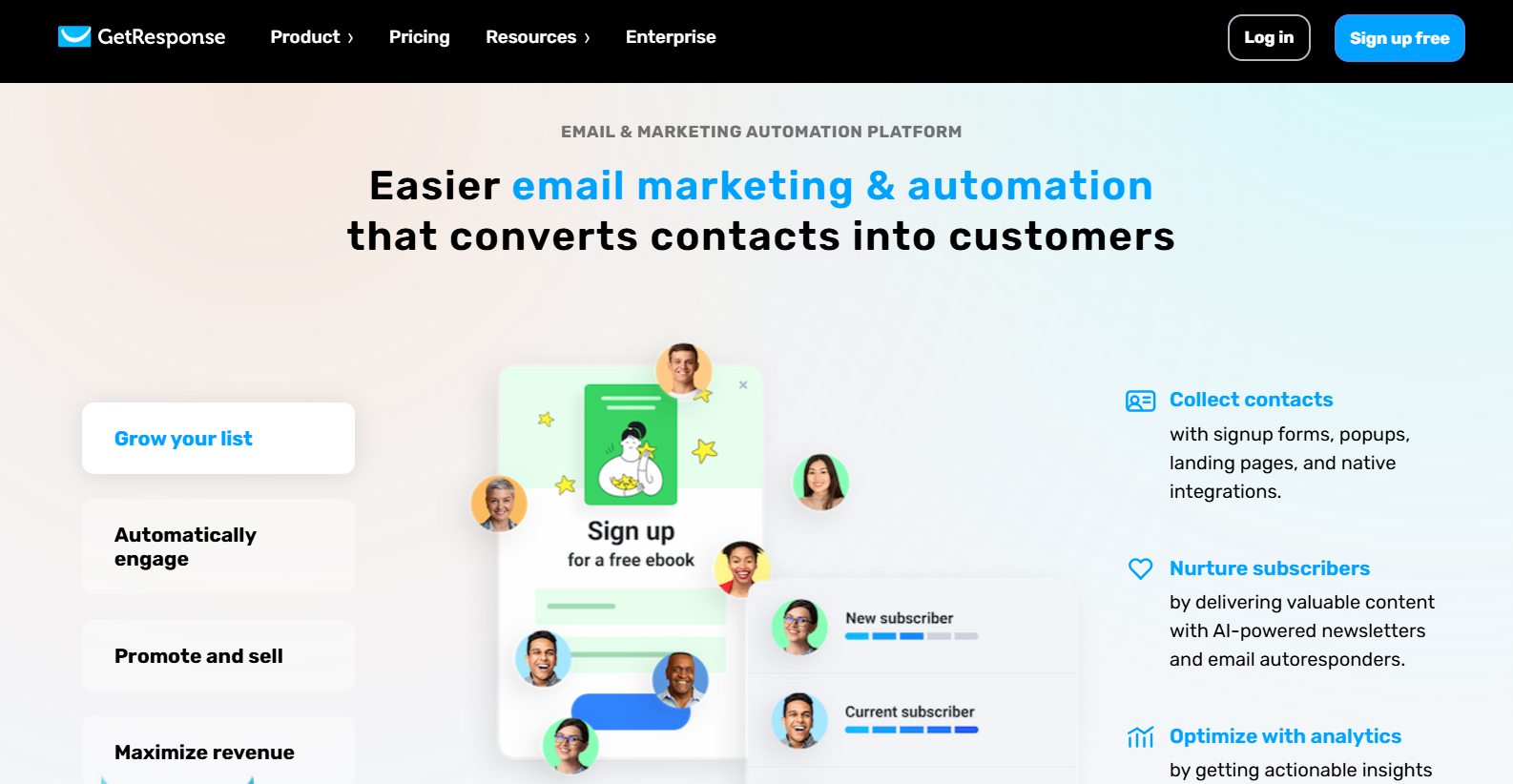
The software has features made for selling online. You can add product recommendations and promo codes to your emails. This helps you boost sales from your campaigns. GetResponse also uses AI to help you target the right customers.
Small and medium-sized ecommerce companies often use GetResponse. It’s good for online retailers, digital product sellers, and subscription businesses. The tool works for both new and growing ecommerce stores.
GetResponse offers 24/7 support by live chat and email. You can also use their help center to learn how to use the software. They have a free plan so you can try out the email marketing tools without paying.
| Pros | Cons |
| Easy to use for beginners | Some advanced features cost extra |
| Good ecommerce integrations | Pricing can get high for large lists |
| AI-powered insights | Learning curve for all features |
ActiveCampaign
ActiveCampaign is a top email marketing software for ecommerce businesses. It helps you send targeted emails to your customers. The platform lets you create custom emails and automate your marketing.
You can personalize messages based on customer data. This makes your emails more relevant. ActiveCampaign also offers features like segmentation and A/B testing.
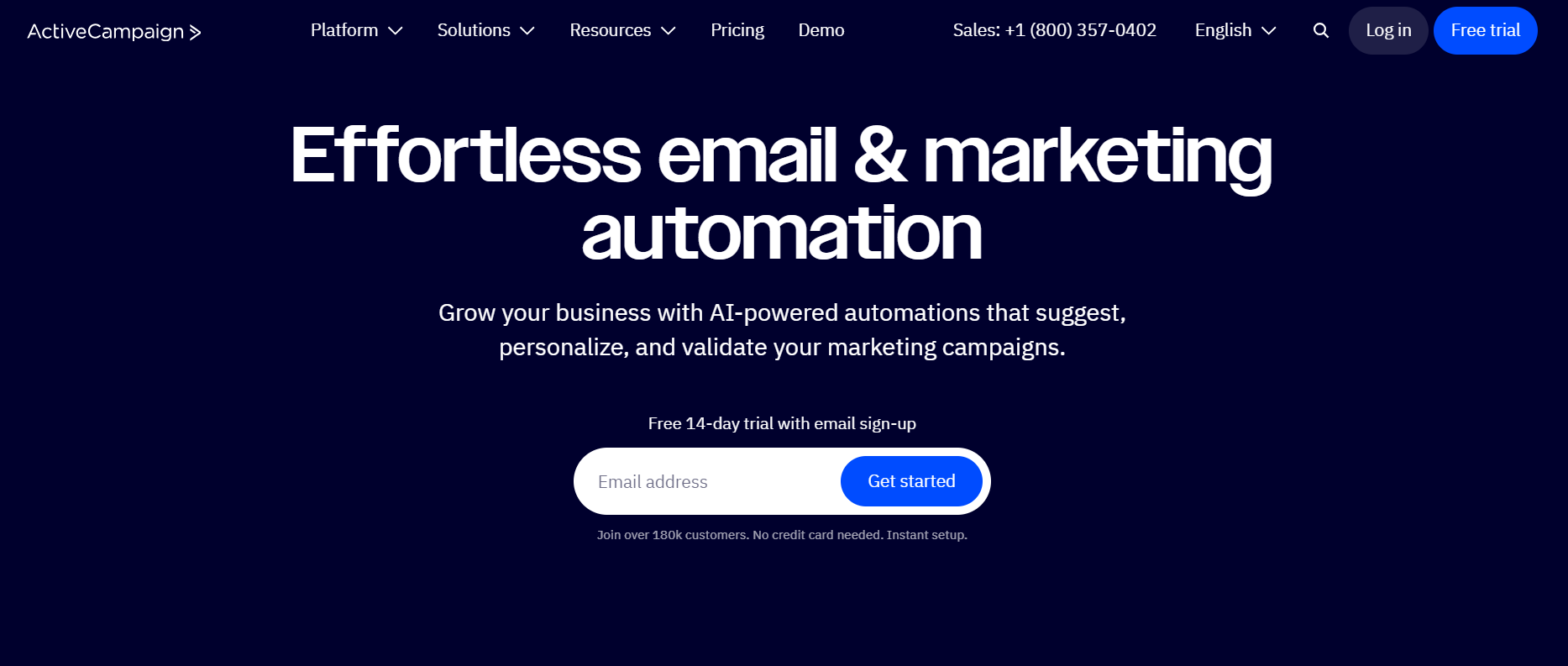
The software integrates with many ecommerce platforms. This makes it easy to sync your store data. You can use this info to create better email campaigns.
Small to medium-sized online stores often use ActiveCampaign. It’s good for businesses that want to grow their email marketing. The tool works well for various industries, including retail and services.
| Pros | Cons |
| Strong automation features | Can be pricey for small businesses |
| Easy to use interface | Steep learning curve for advanced features |
| Good ecommerce integrations | Limited free plan options |
Convertkit
ConvertKit is a popular email marketing tool for ecommerce businesses. It offers features like email automation, landing pages, and subscriber management. You can create targeted campaigns and segment your audience easily.

ConvertKit’s user-friendly interface makes it simple to set up and manage email flows. You can build custom forms to grow your list and track subscriber activity. The platform also integrates with many ecommerce platforms.
This tool works well for small to medium-sized online stores. It’s often used by bloggers, digital product sellers, and content creators. ConvertKit shines in the direct-to-consumer space.
| Pros | Cons |
| Easy to use | Limited design options |
| Strong automation features | Can be pricey for large lists |
| Good for creators and small businesses | Fewer templates than some competitors |
ConvertKit stands out as one of the best email marketing software for ecommerce due to its focus on simplicity and power. You’ll find it useful if you want to create targeted campaigns without a steep learning curve.
Benchmark Email
Benchmark Email is an email marketing platform that works well for ecommerce businesses. It offers easy-to-use tools to create and send emails to your customers. You can make your emails look good on both computers and phones.
The software lets you test different parts of your emails. You can try out subject lines, content, and send times to see what works best. This helps you improve your results over time.
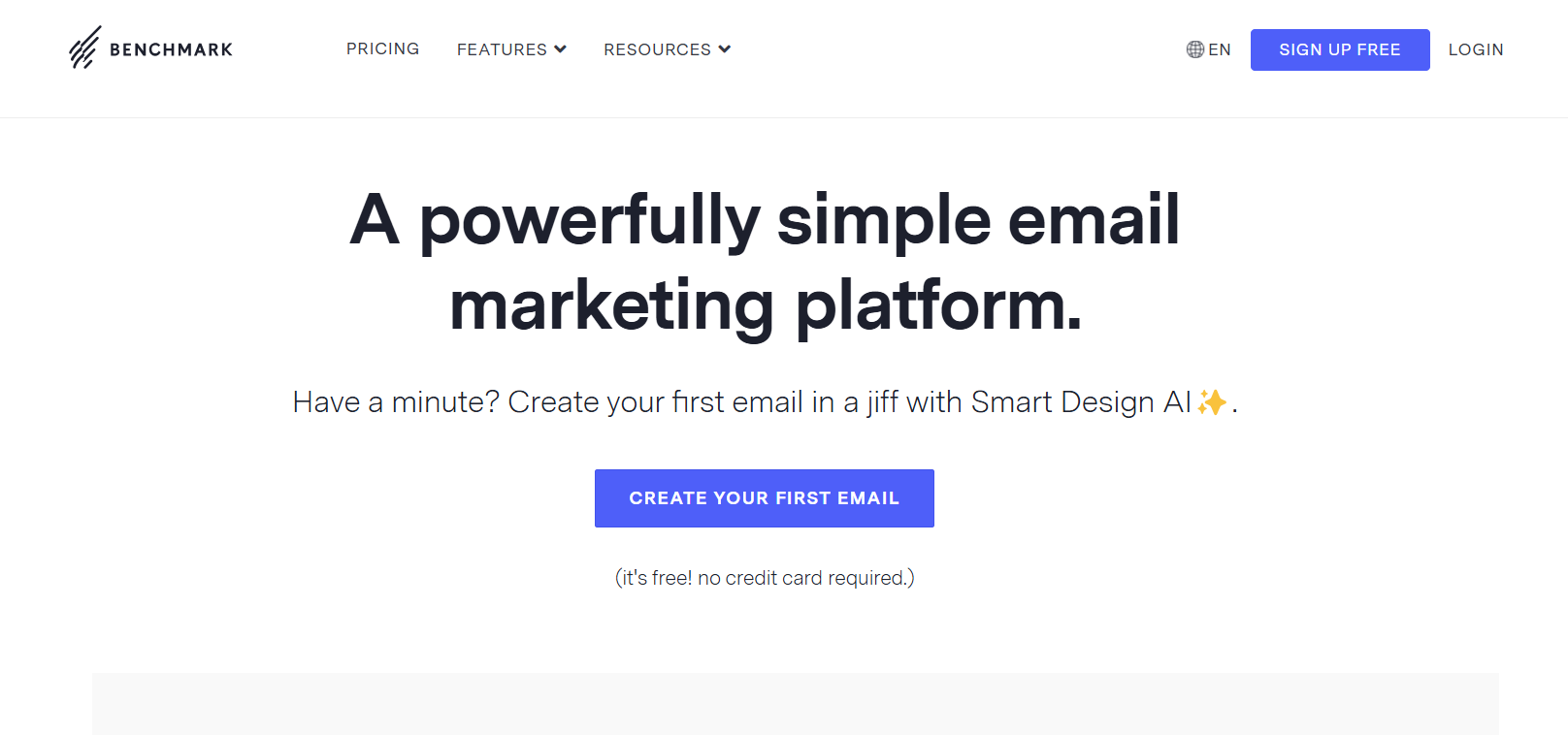
Benchmark Email is good for small businesses and online stores. It has features to help you grow your email list and keep in touch with customers. You can send newsletters, promotions, and other types of emails.
The platform integrates with ecommerce sites to make your marketing easier. You can add product information and customer data to your emails automatically.
| Pros | Cons |
| Easy to use | May lack some advanced features |
| Good for small businesses | Limited free plan |
| Mobile-friendly emails | Some users report deliverability issues |
Mailerlite
Mailerlite is an email marketing platform that works well for ecommerce businesses. You can use it to send newsletters, create automated campaigns, and design landing pages. The software lets you connect your online store to send targeted emails based on customer actions.
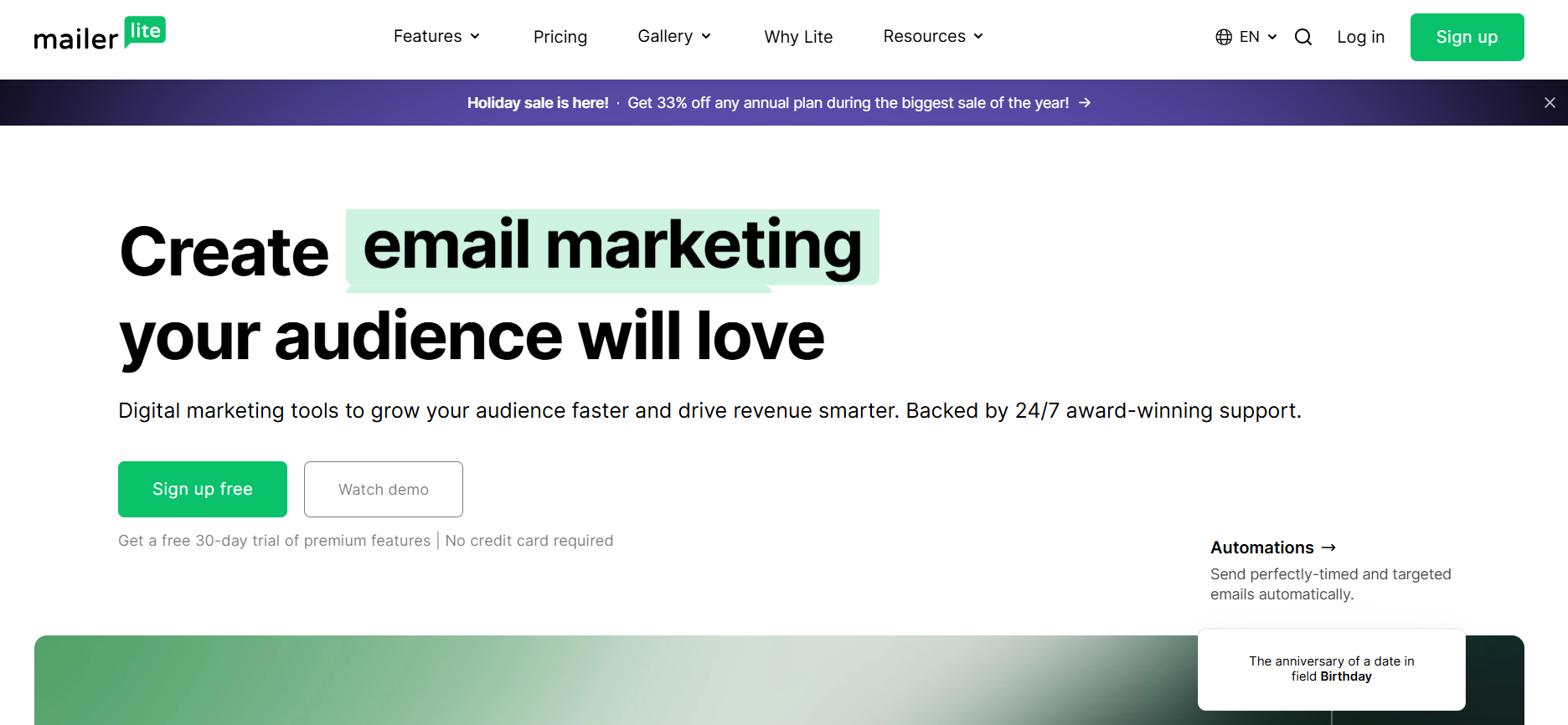
With Mailerlite, you can make eye-catching emails using drag-and-drop tools. You don’t need coding skills to create professional-looking messages. The platform offers templates to help you get started quickly.
Mailerlite caters to small businesses and entrepreneurs. It’s popular with online retailers, bloggers, and digital creators. The tool works for various industries like fashion, food, and technology.
You’ll find Mailerlite useful if you’re just starting out or have a growing ecommerce business. It offers plans that scale as your subscriber list grows.
| Pros | Cons |
| Easy to use | Limited advanced features |
| Affordable pricing | Email templates could be more varied |
| Good ecommerce integrations | Customer support can be slow at times |
Conclusion
Selecting the right email marketing software is crucial for the success of any ecommerce business. The platforms covered in this article provide a range of features, from automation and personalization to ecommerce integrations, all designed to help businesses enhance customer engagement, boost sales, and grow their brand. By carefully evaluating your needs and considering factors like pricing, features, and ease of use, you can choose the best tool to optimize your email marketing strategy and drive long-term success.









